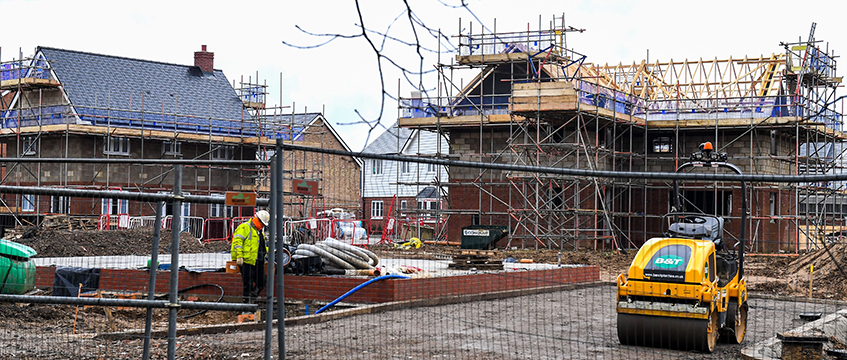Regional reservations for new-builds in Q1 this year were 41% higher than pre-pandemic levels in Q1 2019, with residential developers facing growing pressure to keep up with the pace of demand.
Reservations for new homes rose by 7% in Q1 2022 compared with the same period in the previous year, according to the latest research by Savills.
Demand is rising as new housing supply continues to dwindle. Researchers highlighted that the number of new homes being built has declined over the last three consecutive quarters, with 238,500 new homes built in the year to Q1 2022. This was 7% down on the 255,000 built during the year to Q1 2020.
George Cardale, head of residential development sales at Savills, said there is an “imbalance of buyer demand and the availability of new homes” in the UK.
He added: “Bricks, cement and roofing products have all become increasingly difficult for housebuilders to source, as well as being more expensive to produce, due to the rising cost of energy. Not only is it increasingly costly for developers to build, but a fall in the number of consents granted since the peak of 2019 is creating intense competition for sites to build on.
“There are people ready and waiting who are keen to move into their next home, but stock continues to be an issue.”
Constraints on residential development

Elsewhere, researchers found that buyers are increasingly prioritising EPC ratings as the cost-of-living crisis continues to squeeze households.
A 68% majority of buyers underlined that EPC ratings were an important factor for them when buying a home, while a third said EPC ratings were more important to them compared with a year ago.
Savills noted that new-builds tended to achieve a ‘B’ in EPC ratings, compared with a ‘D’ for second-hand detached, semi-detached or terraced properties and ‘C’ for flats, and that potential buyers could save more than 50% on their bills with new-builds compared with existing stock.
Sophie Tonge, research analyst at Savills, said: “Developers who make the extra effort to go beyond the minimum requirements are likely to better future-proof their developments and entice a larger pool of buyers who are increasingly motivated by cleaner and cheaper ways of living.”
To send feedback, e-mail akanksha.soni@eg.co.uk or tweet @EGPropertyNews











